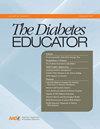Individuals With Type 2 Diabetes: An Exploratory Study of Their Experience of Family Relationships and Coping With the Illness
IF 3.9
Q1 Health Professions
引用次数: 6
Abstract
Purpose The purpose of this qualitative study is to explore familial patterns that may be related to type 2 diabetes (T2DM) and to patients’ ways of coping with the illness. Methods A purposive sample of 32 Israeli Jewish (n = 12) and Arab (n = 20) individuals with T2DM were recruited from a community population and interviewed about their familial experiences and their illness. Interview data were analyzed using Colaizzi’s phenomenological method. Results Many participants, particularly from the Arab society, reported familial patterns that suggest fused relationships and emotional cutoff. They described highly close and positive family relationships, on one hand, but demonstrated unwillingness to share their difficulties with their family members, on the other hand. Precipitating stressful or traumatic events and day-to-day stress appeared as leading perceived causes of the illness. Maintaining an appropriate lifestyle, stress reduction, and family support were the main coping strategies with the illness. Conclusions The findings suggest a possible avenue in which fusion with family members and inability to attenuate emotional distress by sharing difficulties with others may contribute to the development of T2DM. Assessment of such family dynamics and ways of coping with stress could lead to more appropriately nuanced treatment for individuals with T2DM and prediabetes.2型糖尿病患者家庭关系和疾病应对经验的探索性研究
目的本定性研究的目的是探讨可能与2型糖尿病(T2DM)和患者应对疾病的方式有关的家族模式。方法从社区人群中招募32名以色列犹太(n=12)和阿拉伯(n=20)T2DM患者,并就他们的家庭经历和疾病进行访谈。访谈数据采用Colaizzi的现象学方法进行分析。结果许多参与者,特别是来自阿拉伯社会的参与者,报告了家庭模式,表明融合的关系和情感切断。他们一方面描述了高度亲密和积极的家庭关系,但另一方面却表现出不愿与家人分享他们的困难。突发的压力或创伤事件以及日常压力似乎是导致疾病的主要原因。维持适当的生活方式、减轻压力和家庭支持是应对疾病的主要策略。结论研究结果表明,与家人融合以及无法通过与他人分享困难来减轻情绪困扰可能有助于T2DM的发展。对这种家庭动态和应对压力的方式进行评估,可以为T2DM和糖尿病前期患者提供更合适的细致入微的治疗。
本文章由计算机程序翻译,如有差异,请以英文原文为准。
求助全文
约1分钟内获得全文
求助全文
来源期刊

Diabetes Educator
医学-内分泌学与代谢
CiteScore
4.00
自引率
0.00%
发文量
0
审稿时长
6-12 weeks
期刊介绍:
The Diabetes Educator (TDE) is the official journal of the American Association of Diabetes Educators (AADE). It is a peer-reviewed journal intended to serve as a reference source for the science and art of diabetes management.
TDE publishes original articles that relate to aspects of patient care and education, clinical practice and/or research, and the multidisciplinary profession of diabetes education as represented by nurses, dietitians, physicians, pharmacists, mental health professionals, podiatrists, and exercise physiologists.
 求助内容:
求助内容: 应助结果提醒方式:
应助结果提醒方式:


